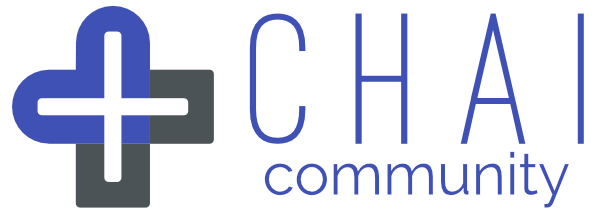Being a volunteer, carer, friendly neighbour, concerned friend or relative already makes you a special person.
With CHAI Community you have the opportunity to help the vulnerable people you already support, better – and possibly helping a few more people you didn’t even know needed it.
We are all “vulnerable” in some way. For the lucky ones among us the risks to our health and wellbeing feel (and often are) so low we don’t think about it. Less fortunate people are more vulnerable and experience daily challenges like loneliness or other physical or mental constraints. Many (if not most) in this category either don’t see themselves as highly vulnerable or are so afraid to accept it, they don’t reach out for help.
Most vulnerable people don’t ask for help…
Modern (particularly Western) society probably doesn’t help this situation. We are all trained to believe that our vulnerabilities are Top Secret information and only shared on a “need-to-know” basis. There are obviously some sound personal privacy and safety reasons for this, but it goes too far. A doctor may take your blood pressure and secretly record it on a computer without telling you what is it. You are only “trusted” with your data if you sign a form. It’s no wonder that vulnerable people in society may think their condition (whatever it is) should be kept secret. Recently a man in England made headline news because he reached out for help. He had moved to a new area away from friends and family and sadly his wife soon died. In desperation he put a large notice in his front window:
“I have lost Jo. My lovely wife and social mate. I have no friends or family. No one to talk to. I find the unremitting silence 24 hours a day unbearable torture. Can no one help me?”
Being lonely and not getting support is not headline news because there are millions of truly lonely people. The news item is how desperate he became before he shouted out for help. Around the world, Covid-19 has demonstrated that there is an overwhelming supply of willing volunteers and caring people wanting to help; the problem is that most vulnerable people don’t ask for help.
… and they don’t receive it.
Many volunteers become disillusioned because they are given nothing to do and they want to help. Sadly, the most vulnerable in society are often left to fend for themselves and at best reach out to wonderful support organisations provided they are prepared to make the first move (most don’t).
“Thinking about how to enhance the informal ways people connect with others and offer assistance opens up the possibilities for positive change.”
Professor Jane South et al, “A guide to community-centred approaches for health and wellbeing”, Public Health England (NHS England), Feb 2015
CHAI Community is about discovering vulnerable people and their unmet needs and sharing them with others they trust and who care and can help.
Connected community spirit!
The opportunity to improve people’s lives is huge
“Over 1 Million Vulnerable People in the UK Have Not Spoken to Friends, Family or Neighbours for Over a Month”
“Loneliness in older people“, NHS website, September 2018
It can be relatively easy using modern technology to help.
If you are a volunteer, friend, family member or any kind of carer, it is important that you proactively approach people who you want to help if they need it. It’s not just about loneliness.
CHAI Community can help you make this first step by providing a framework to help you assess a person’s unmet needs.
You will be guided to ask some very basic, and optionally more detailed, questions about how a person is coping. You don’t need any training, and if you have any concerns it is simple to flag them up to others who may be helping you. In fact, if you are working as a team in some sort of group then you (or your group leader if you have one) can decide who to share the information with so that everyone can help in their own way, and in their own time.
